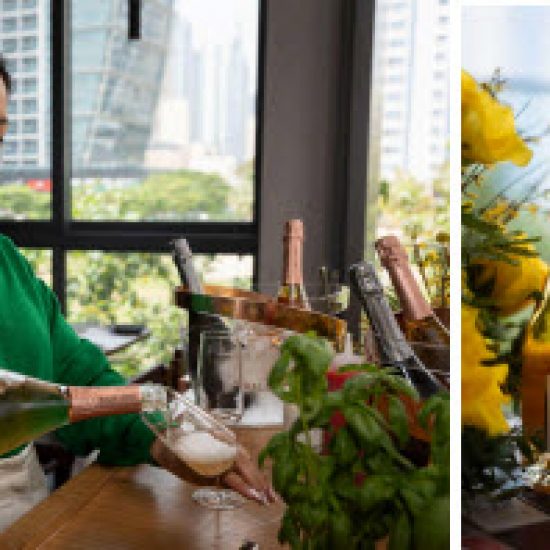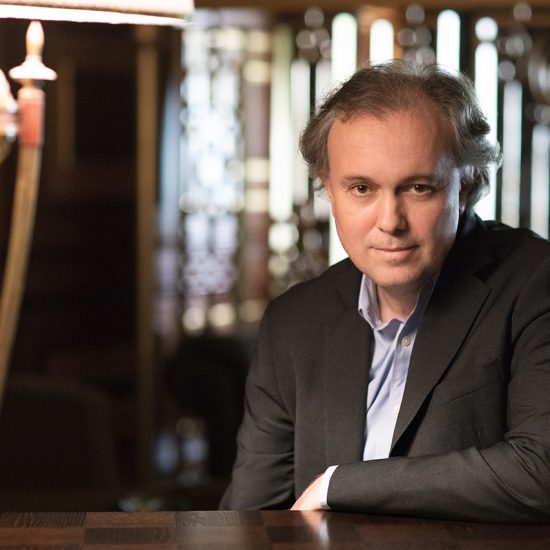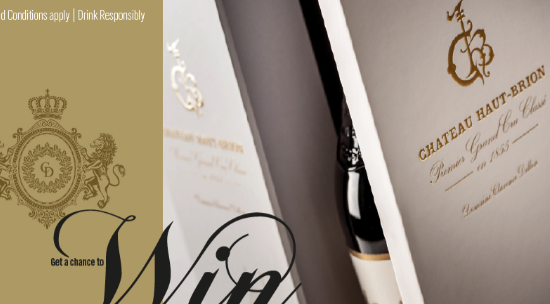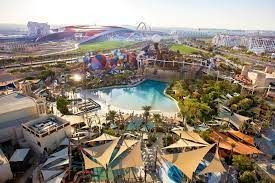
In Nairobi, children kick a football down the street pretending to be Ronaldo. In London, K-pop is on MTV. And in an Abu Dhabi mall, a queue forms outside the latest bubble-tea cafe.
We have all become familiar with the continuous creep of globalisation. So it’s not surprising that, like other industries, classical music hasn’t been left behind.
Next week, one of the bastions of the British cultural calendar – the BBC Proms – comes to Dubai, and its arrival marks the latest blossoming of the UAE’s cultural fortunes.
But perhaps the thought of Union Jacks being waved to the sound of Rule Britannia in an opera house situated in the Gulf is no more incongruous than Tokyo hipsters eating calzone or Paris socialites lapping up how-to books about Danish hygge?
Western classical music – many other countries, including China and India have their own classical-music traditions, too – has always been a fairly global affair. Swan Lake’s Russian composer, Pyotr Ilyich Tchaikovsky, sailed into New York for Carnegie Hall’s opening festival in 1891. (“Is it safe to drink the water in America?” he wondered in his notebook.) And one of Britain’s most celebrated composers, George Frideric Handel, was actually born in Germany.
But like fashion and sport, today, the classical-music industry is substantially bigger, encompasses more regions than just Europe and the United States, and eagerly taps into the hyper-connected world in which we all live.
Conductor Edward Gardner, who is travelling with London’s BBC Symphony Orchestra to perform at the BBC Proms Dubai, is also chief conductor of the Bergen Philharmonic Orchestra. He suggests the increase in migration among musicians is one reason for the disappearance in the regional sound differences that dominated classical music well into the mid-20th century.
“Everyone would acknowledge there is something that is being smoothed over because people travel so easily and orchestras are more international anyway,” Gardner says. “Take my orchestra [the Bergen Philharmonic Orchestra] in Norway; it has more than 20 nationalities.”
One such migrating musician is composer Joanna Marsh. Born in Britain and educated at Cambridge University and London’s Royal Academy of Music, Joanna moved to the UAE 10 years ago when her husband became chief executive of Dubai Airports.
The experience has profoundly affected her work. Several recent compositions were inspired by the Burj Khalifa, including a comic opera she’s currently penning called My Beautiful Camel (“a real hoot” to write, she says), while the Emirati tradition of pearl diving influenced a harp duet.
A new work, Flare, owes some creative debt to the Gulf’s oil industry, and receives its premiere at the BBC Proms Dubai on March 23.
“I wouldn’t have been thinking in that direction had I just stayed in Sussex,” she says, “but I think it’s very natural to absorb your surroundings.”
Mohammed Fairouz is another composer whose work is being performed at BBC Proms Dubai (Pax Universalis, March 21, and Different Ways to Pray, March 22). Born to Dubai parents, Fairouz grew up on several different continents, and trained at the Curtis Institute of Music in Philadelphia and the New England Conservatory. Now based in New York, he continues to travel regularly for his music.
“One of the things I think is interesting about people who think globalistically is that they don’t think in bubbles,” Fairouz says. “If you think globalistically, then you see the big picture. You see the entire world. I think that we believe that there are many more horizons beyond our field of vision because we see enough to see what we don’t see.”
Being the first Emirati composer working in the classical orchestral tradition to have his music performed at Dubai Opera, Fairouz is the epitome of the new direction of travel in which the contemporary classical music world is moving – or at least one channel of it.
Perhaps even more telling is the fact his work is being performed in a country whose first opera house is not even a year old. The UAE is one of several countries investing heavily in classical music for the first time, and the result is radically changing the industry.
“It is getting to the stage now where they will be the main markets for classical music in the next 20, 30 years,” Gardner says.
Dubai Opera chief executive Jasper Hope says that in many cases before Dubai Opera opened, audiences were not given a high-quality experience or value for money.
“For a great musical experience, you need the best artists on the best stages, and I’m very proud to have helped raise expectations in Dubai and to have helped to provide a great stage on which great artists may now perform throughout the year,” Hope says.
And what part will Dubai continue to play in this bold future fuelled by musical globalisation? The first step, Hope says, is to bring some of the world’s best musicians to Dubai for the first time, and that by doing so: “Dubai Opera will inspire the development of an authentic local sound created by local composers, writers and musicians that people may one day come to know as the Dubai sound.”
Fairouz has his sights set as equally high. “Vienna was the city of Mozart’s time; it was a city of the 1800s. I think that the 19th century was largely Paris’s century. The 20th century was largely New York’s century. And the 21st century? I think it’s going to be Dubai’s.”
BBC Proms Dubai is at Dubai Opera from 21-24 March. Tickets from 50 AED and available from www.dubaiopera.com








